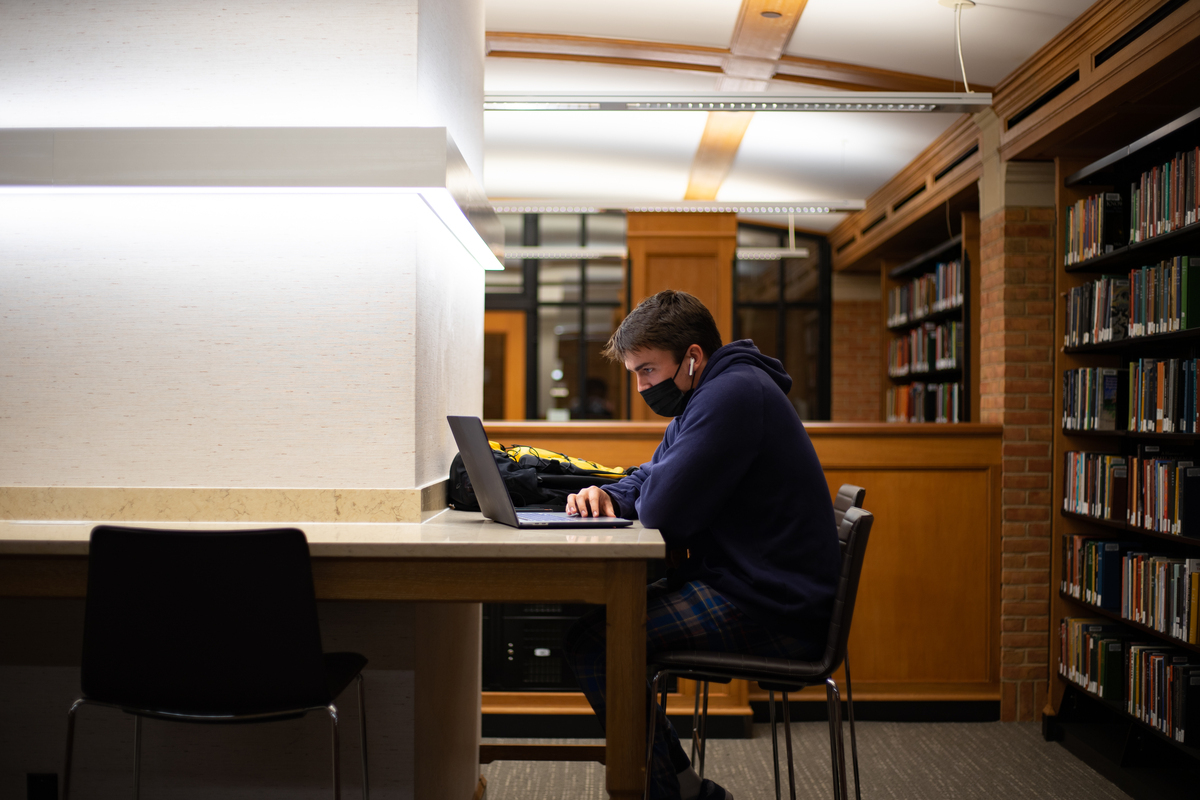Mental health services expanded amid continued frustrations
As demand for mental health services at Yale has increased, limited infrastructural expansions have been met by continued student frustration.

Tenzin Jorden, Staff Photographer
Content warning: This article contains references to suicide.
***
The National Suicide Prevention Lifeline is a hotline for individuals in crisis or for those looking to help someone else. To speak with a certified listener, call 1-800-273-8255.
Crisis Text Line is a texting service for emotional crisis support. To speak with a trained listener, text HELLO to 741741. It is free, available 24/7 and confidential.
To talk with a counselor from Yale Mental Health and Counseling, schedule a session here. On-call counselors are available at any time: call (203) 432-0290.
Students who are interested in taking a medical withdrawal should reach out to their residential college dean.
Additional resources are available in a guide compiled by the Yale College Council here.
Demand for mental health care on campus has increased substantially in recent years. That trend has been compounded by the effects of the pandemic.
Within the University, there have been growing conversations and concerns about the infrastructure of Mental Health and Counseling. Recently, alums told the News that feelings of betrayal and shame students experience with Yale’s mental health services are not new.
“I definitely felt like neither of [my clinicians from MHC] were ever listening to me,” Nicolette Mantica, a student who struggled with self-harm and depression, said. “And because I didn’t think they were helping, I didn’t always tell the truth. I would lie about self-harming. Like, ‘They’re not doing anything for me, why would I tell them when I feel this way?’”
Mantica told the News the service from MHC continued to disappoint her, and she eventually decided to transfer to Northwestern University after taking a medical withdrawal from Yale.
These continued complaints come at a time when Mental Health and Counseling director Paul Hoffman told the News he saw the largest single-year utilization increase in the department’s history. While Hoffman told the News these increases are proportional to the record enrollment of the 2021-2022 school year, he said the mental health challenges experienced by students have been more extreme this past year, and in the fall semester, MHC offered treatment to around 1,000 students per week.
“Overall, there has been a national trend in students utilizing mental health treatment at increasing rates,” Hoffman wrote in an email to the News. “Yale has seen significant yearly increases in students seeking treatment since 2015. This seems tied to decreasing stigma around mental health and an increase in rates of anxiety and depression.”
In addition to the rising demand, there has been a rise in student activism surrounding the issue, especially after Rachael Shaw-Rosenbaum ’24 died by suicide in March 2021, sparking the creation of the mental health advocacy group Elis for Rachael.
Given this increased demand and student activism, MHC has expanded its services, although some students still find it difficult to find satisfactory mental health care.
MHC is Yale’s primary mental health care department that offers individual, group and couples therapy with licensed clinicians. After an initial intake session, students can meet with clinicians to determine the regularity of their therapy and the length of time for which it will continue.
In April 2021, the University expanded its mental health services with the creation of Yale College Community Care, or YC3, which is separate from MHC. YC3 offers undergraduate students drop-in support with four college care clinicians and four community wellness specialists. Clinicians are licensed psychologists and social workers, while community wellness specialists are non licensed wellness professionals.
In addition to YC3, mental healthcare at Yale has also expanded through the addition of a new location at 205 Whitney Avenue, but Hoffman wrote to the News that this is only a “temporary space” to facilitate the growth of the MHC staff.
Walden Peer Counseling, an organization that pairs students with anonymous undergraduate counselors who have been trained on mental health issues at Yale, also offers mental health services to students.
Many of the conversations about mental health care, especially the advocacy of Elis for Rachel, focus on the withdrawal process which some students have described as confusing or distressing. Withdrawals are leaves from campus taken after the first fifteen days of a semester, and can be granted for numerous reasons, including mental health concerns. Withdrawn students are forbidden from entering campus without special permission, and students who withdraw must meet certain requirements for reinstatement. However, the University quietly relaxed the reinstatement requirements this past spring.
The new policy for withdrawals states that students will no longer be required to complete outside coursework or to interview with the Chair of the Committee on Reinstatement as conditions of their return to Yale, but no announcement was made with this information, only an update to the Reinstatement FAQs page.
“The biggest thing for me is the sense that students feel reluctant to take a withdrawal when their health or other circumstances really would make a withdrawal very beneficial to their wellbeing and to their healing,” Dean of Yale College Marvin Chun told the News. “We really want students to take a withdrawal and not feel any stigma or any kind of barrier associated with it.”
All Yale students enrolled at least half time in a degree program are eligible for counseling at MHC free of charge.



